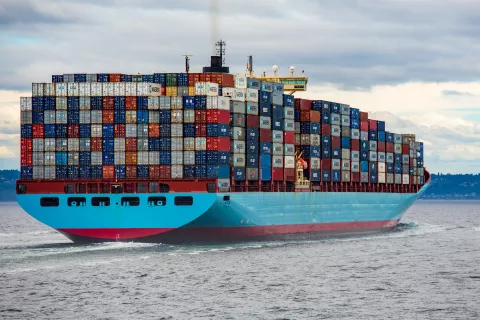
In the early morning hours of 6 December 2022, the EU Commission announced the successful conclusion of negotiations on an EU regulation on deforestation-free products. The Council and the Commission of the European Union, as well as the European Parliament, agreed on a legislative text that will require companies to demonstrate that no forests have been cleared for the production of certain agricultural goods and wood products after December 2020. The EU is the second largest driver of deforestation after China through its imports of soy, beef, oil palm, coffee, cocoa, rubber and wood products.
Under the new regulation, companies that want to place specific products on the EU market or export them from the EU will have to submit a due diligence declaration confirming that forests have not been cleared for production, nor have primary and naturally growing forests been converted into plantations, and that the laws of the country of production have been complied with. However, a major weakness of the agreed text is that companies only have to comply with the human rights legislation of the respective country of production. If international human rights agreements have not been incorporated into national law in the country of production, the companies affected by the EU regulation do not have to prove that they comply with them.
Germanwatch advocated early on for due diligence ensuring that internationally recognized human rights – especially with regard to Indigenous Peoples and local communities, and their right to free, prior and informed consent (FPIC) – definitely have been respected. This would be the only way that Indigenous Peoples could be protected from land grabbing and the deprivation of their livelihoods.
Another weak point is that, as of the date the regulation comes into effect, other wooded land is not protected from conversion into agricultural land. This had been proposed by the EU Parliament – and Germanwatch also supported this proposal – in order to preserve important biodiversity and CO2 sites. Instead, the regulation only provides for the preparation of an impact assessment for the inclusion of "other wooded land" one year after its entry into force. This means that large areas, such as the Cerrado savannahs or wetlands like Brazil's Pantanal, will initially continue to be at risk of conversion to agricultural and grazing land for products for the EU.
The inclusion of financial actors in the due diligence obligations, as demanded by the EU Parliament, was a point of contention in the negotiations right to the end. Financial institutions won’t have to screen their investments for deforestation risks from the beginning on. Instead, it is envisaged that two years after the law comes into force, the EU Commission will present a reviewing assessment of whether existing EU legislation is sufficient to address the role of banks, insurance companies and pension funds in global deforestation.
Together with Climate & Company, Germanwatch already examined existing EU regulations and EU legislation proposals to determine whether they can prevent the financing of deforestation. Our study shows that no other EU regulatory measures will impose due diligence requirements on the financial sector regarding deforestation. Together with partner organizations, we therefore call on policymakers to finally stop the large investments from Europe that contribute to deforestation for agricultural and energy production by imposing deforestation risk disclosure and due diligence requirements. EU member states will control at least nine percent of companies that must source products from countries whose deforestation risk has been classified as very high by the EU.
A success was achieved in the list of products covered by the regulation by including rubber, printed paper and charcoal. No later than two years after the regulation comes into force, the EU Commission must determine whether further products such as corn, pork and biodiesel will be included in the regulation in the future.
Following today's successful conclusion of negotiations, the EU will already present the historically unique legislative resolution against global deforestation in supply chains at the UN Biodiversity Conference (CBD) in Montreal, despite all remaining shortcomings. Finally, in spring 2023, the legislative text is to be formally adopted and will apply to large and medium-sized enterprises 18 months and to micro and small enterprises 24 months after entry into force.
Our own work and that of numerous other environmental organizations and observers will not end here: We will work from now on to ensure effective implementation of the regulation. In addition, we will accompany the elaboration of the impact assessments for small farmers and for the financial sector as well as commodity specific guidelines for companies. Above all, we will advocate for the EU ‘s cooperation with producing countries and other markets such as China, so that deforestation and the associated human rights violations, greenhouse gas emissions and biodiversity losses are ended once and for all.


